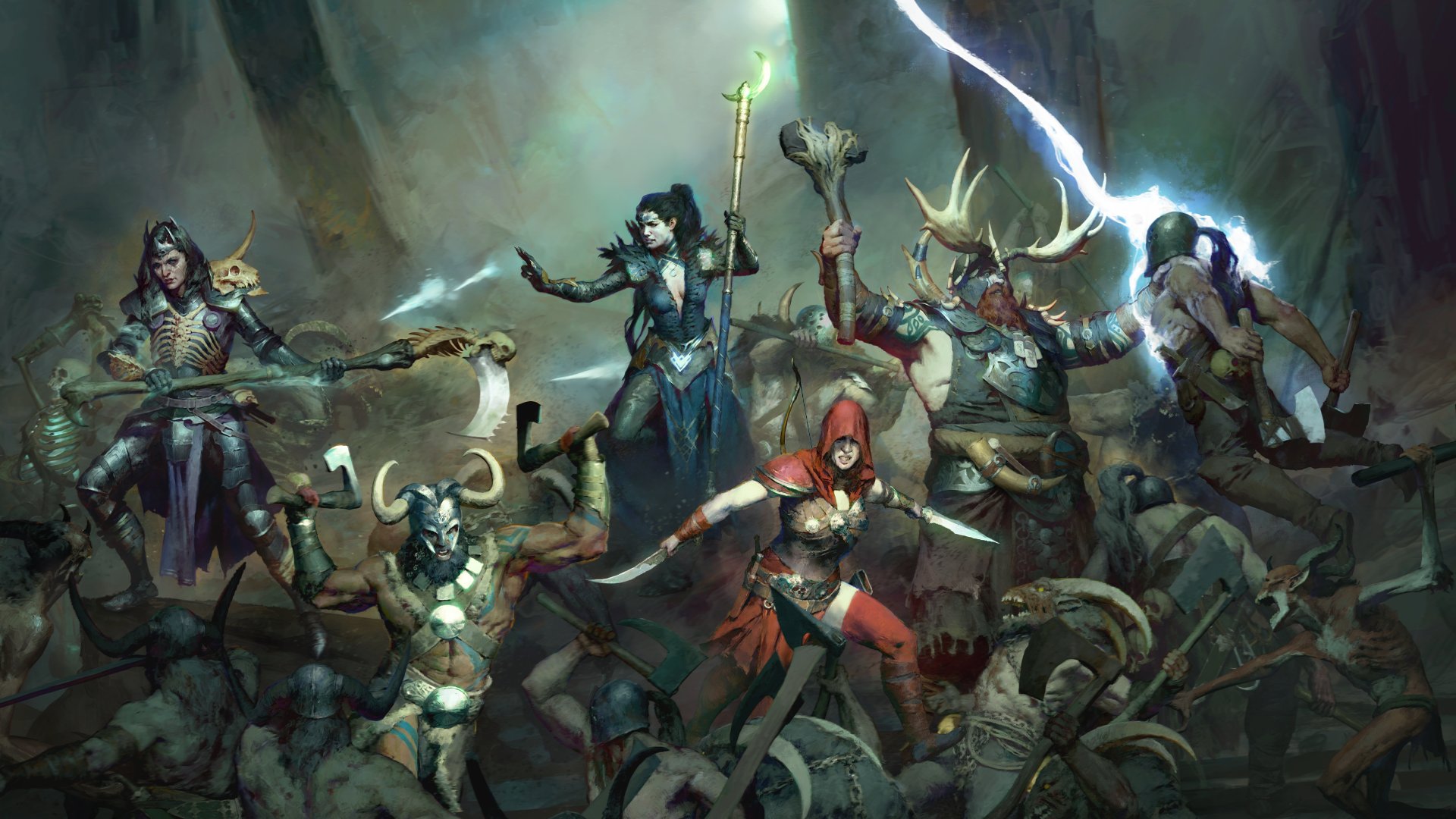
Like other ARPGs and the rest of the Diablo games before it, Diablo 4 gives players the opportunity to choose from several classes when creating their character. Specifically, the game features five distinct classes, with each one characterized by unique mechanics, systems, strengths, weaknesses, gear types, and more.
Make no mistake: every Diablo 4 class is powerful, and no matter which one you choose to play as, you'll have great success fighting your way through the demon-infested lands of Sanctuary. With that said, some classes are a little stronger than others, and depending on how you like to play, there's a good chance you'll have some preferences. To help you pick one to play, we've broken down everything you need to know about each one. This includes a tier list of the best classes, an overview of each class, and some class suggestions for beginners and solo players.
Diablo 4: Best class tier list
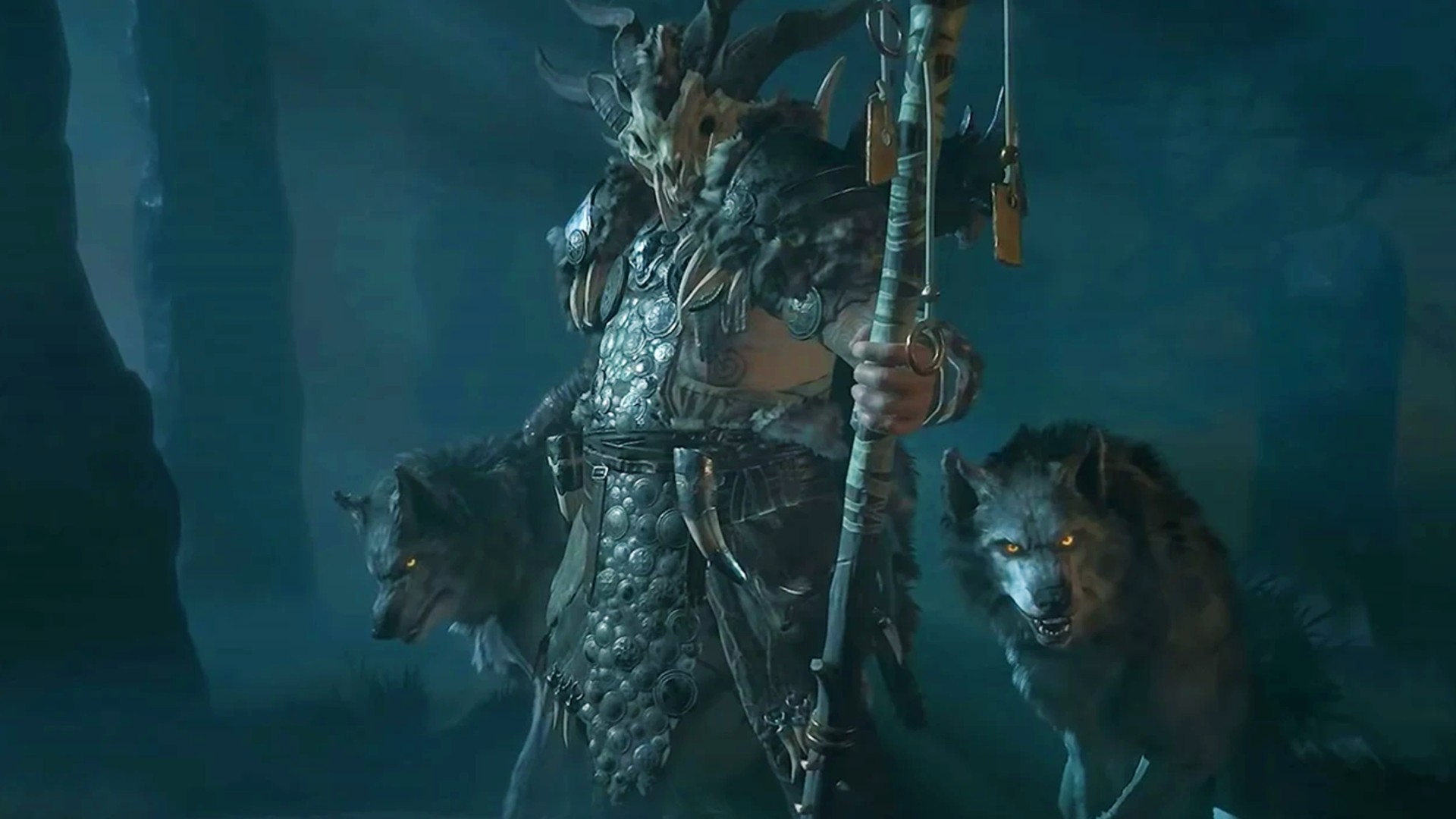
As we said before, Diablo 4 has been balanced so that all of its playable classes are effective. There is no "bad class," and ultimately, you shouldn't worry about the metagame at all and should simply choose the class that sounds the most fun to play.
With that said, some classes are slightly better than others, and players comfortable with all playstyles will likely want to opt for the best overall class. With that in mind, we've ranked each class in the tier list below.
Right now, it's hard to pin down exactly which classes will be the "best." As players hack and slash their way through Sanctuary, they'll come across unique drops that have the potential to radically change their class' potency with certain affixes. Many of these items haven't been discovered yet, though we expect that will quickly change once Diablo 4 has fully released.
Barbarian was considered among the weakest in the game's initial beta tests, but in endgame they become extremely viable. There are Whirlwind build videos showcasing Barbarians one-hit killing The Butcher and other major bosses. Some Rogue builds have also proven to be potent enough to solo world bosses, even though that class is generally considered to be a bit on the weaker side. Our Diablo 4 review was performed primarily on a Druid, who also has extremely potent end-game builds, while Necromancer has taken a bit of a hit due to nerfs to their summons.
We'll have a deeper analysis post-launch once more uniques have been discovered, since they radically change what each and every class is capable of. There are plenty of builds we still need to try, too!
Diablo 4: Which class should you play?
Here, we'll go over the ins and outs of each class to give you an idea of what to expect while using them.
Barbarian
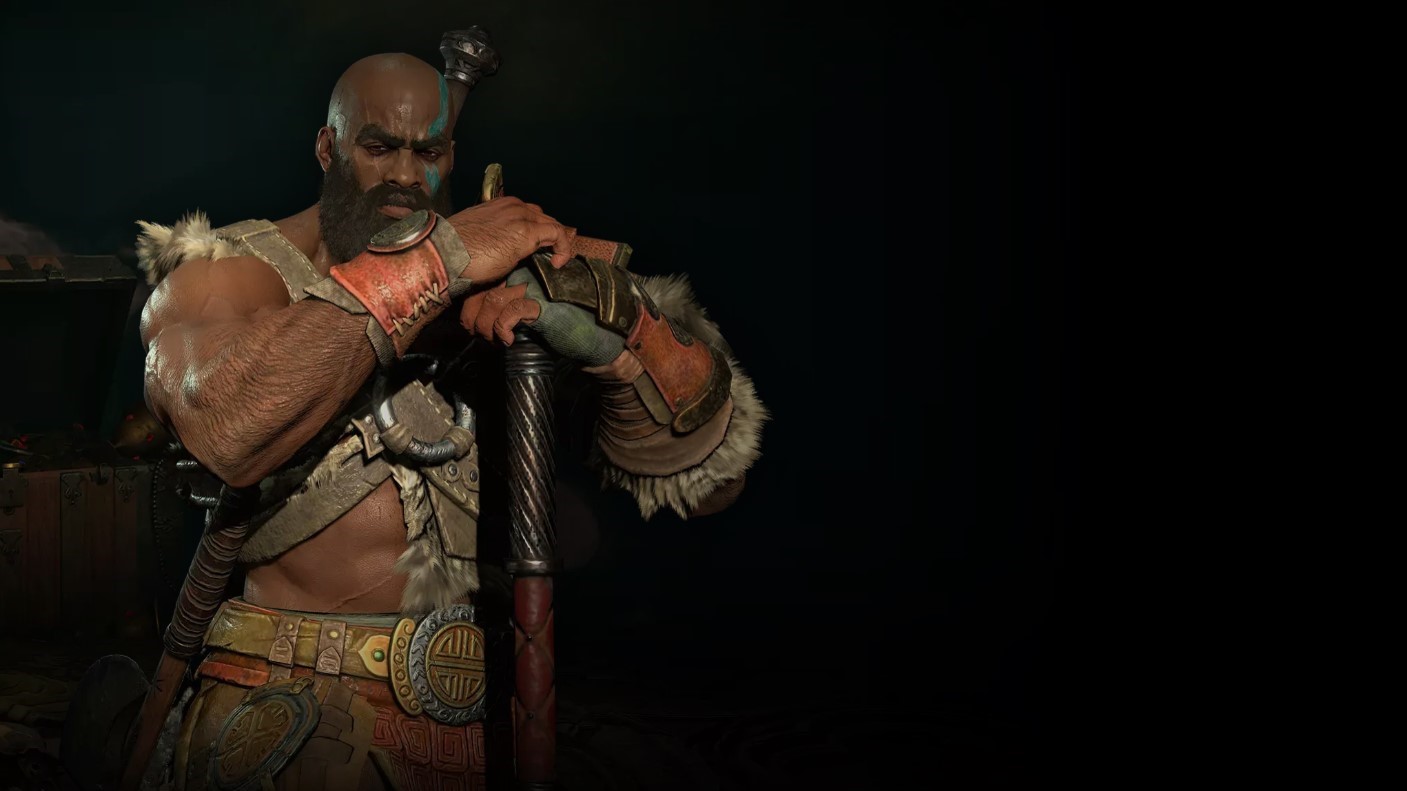
- Strengths: Lots of health, mobile, forgiving to play
- Weaknesses: Short range, melee combat can be risky and put you in danger quite easily
The Barbarian is Diablo 4's tanky and straightforward melee class, capable of dishing out good close-range damage and staying on top of foes with high movement speed. They can deal damage-over-time with Bleed status effects and also have plenty of health and 10% damage resistance, making them easier to play than other classes in most situations. Initially one of the game's weakest classes, Barbarian has surged to the top of the meta thanks to recent buffs.
Their unique class mechanic is the Arsenal system, which allows you to equip multiple weapons and assign them to individual skills for unique stat bonuses. The resource Barbarians use for their most powerful skills is Fury, which is rapidly gained while attacking with basic attacks and slowly lost when out of combat.
Barbarians will struggle more than other classes when facing enemies at a distance, as the Barbarian skill tree doesn't feature effective ranged options. Additionally, enemy crowd control abilities will limit their ability to close the distance if they get hit too often.
Rogue
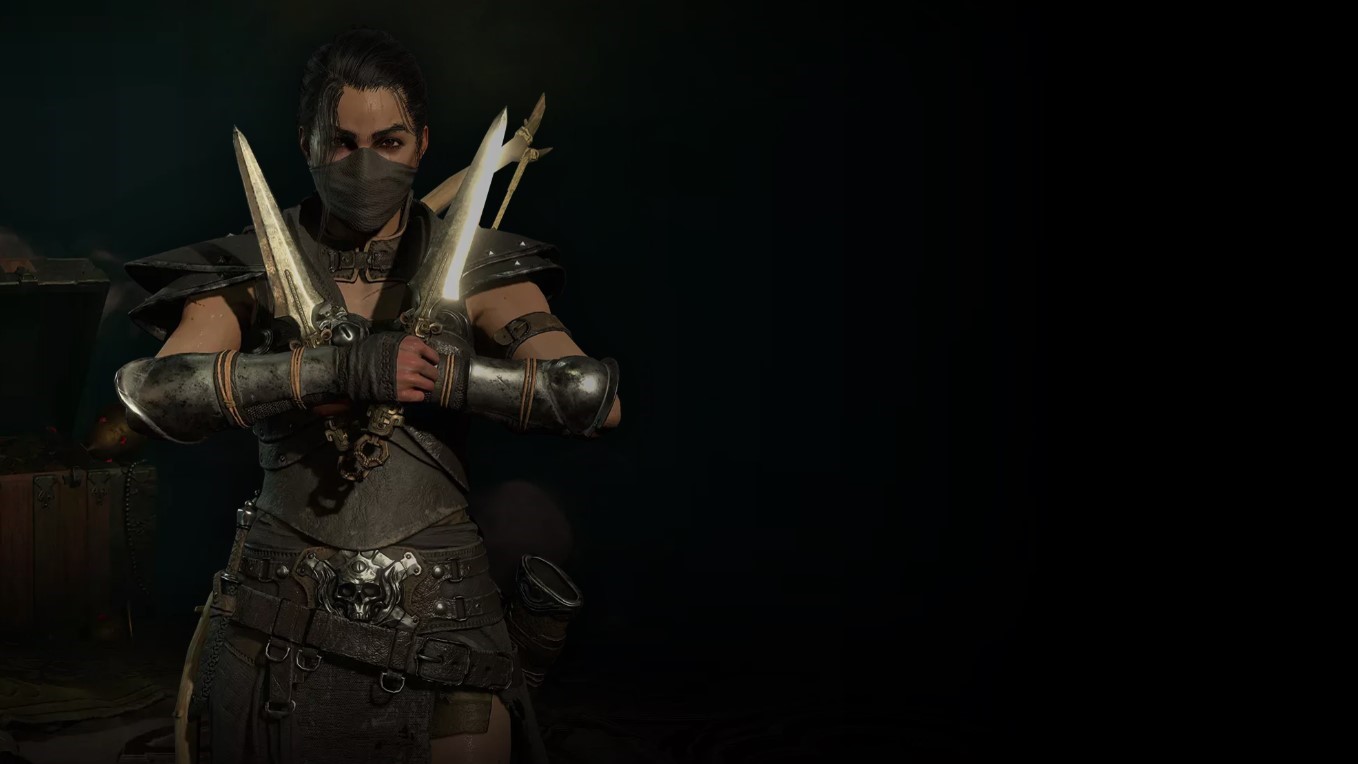
- Strengths: Versatile, high crit damage, lots of status effects
- Weaknesses: Not very resilient, challenging to play
Rogues are one of the most versatile classes in Diablo 4, as they can attack enemies from afar with bows or up close with daggers. They're capable of dealing huge critical damage, and can also imbue their weapons with magic or lay deadly traps to inflict various status effects. Rogue's can begin choosing class-exclusive Specializations once they reach level 15, too, which are essentially bonus mechanics that change how your skills interact with one another. For example, the Combo Points Specialization lets you build up combo points as you repeatedly hit an enemy with your basic attacks, which are then spent when you use a core skill like Flurry or Barrage.
Rogues use Energy as their primary resource, which is slowly regenerated over time. However, certain abilities and talents on the Rogue skill tree improve its regeneration rate or give you a certain amount of Energy points back when used, increasing your uptime with powerful abilities that require it.
Rogues are fairly difficult to play compared to other classes, so you may want to start with an easier class like the Barbarian first if you're new to Diablo. This is because they don't have a ton of health, and also because managing your skills and Energy efficiently is very important as a Rogue.
Sorcerer
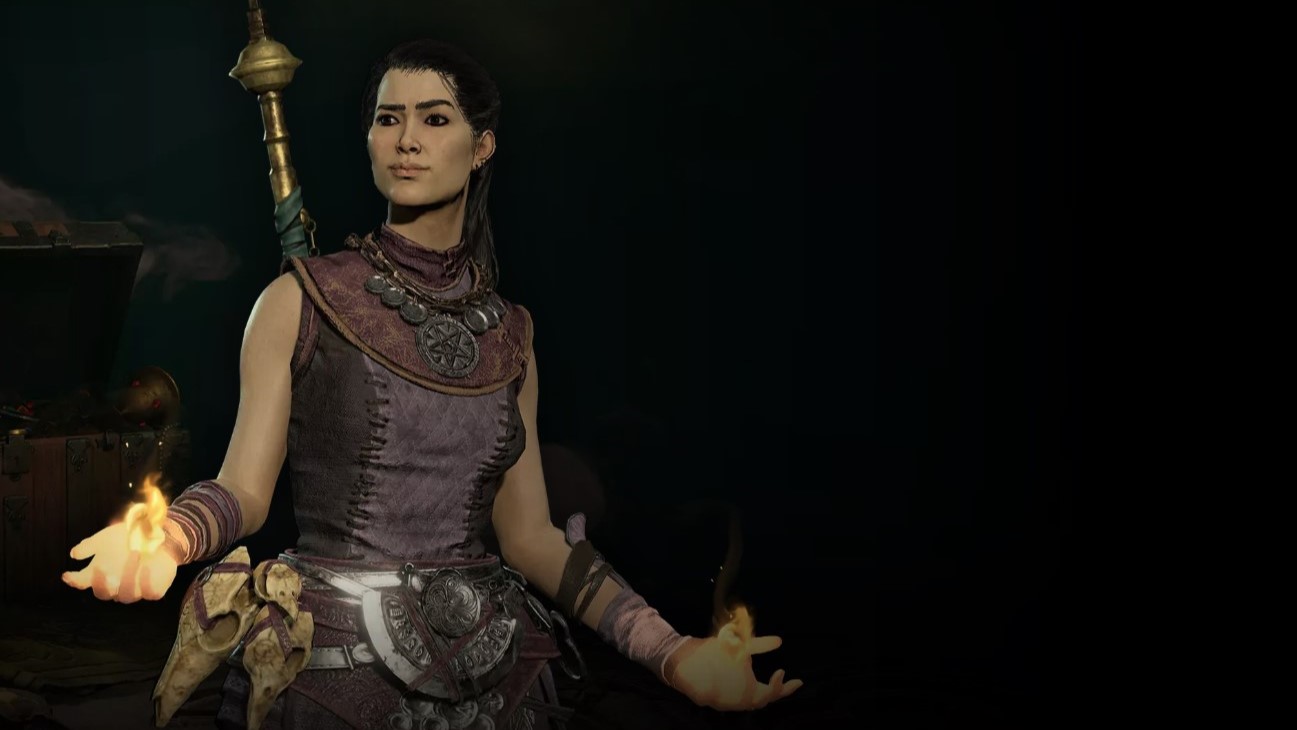
- Strengths: High damage, long range, lots of status effects
- Weaknesses: Low health, less effective up close
Sorcerers (or Sorceresses) are essentially the opposite of a Barbarian, as they have low health, but are capable of very high ranged magic damage. Even though they can't take much punishment, they're a great class for careful solo players since they can crowd control groups of enemies very effectively with their spells. Frost spells are particularly effective for this since they Chill whatever they hit, slowing targets down considerably. Fire spells are fantastic for area-of-effect damage and inflicting the damage-over-time Burn effect, while Lightning spells deal tons of damage when you get critical hits with them.
The Sorcerer's class-specific resource is Mana, which is similar to Rogue Energy in that it comes back over time and can be regenerated faster by using certain skills and talents. Careful Mana management is crucial for Sorcerers, as using too much too quickly could leave you unable to use the best spells from the Sorcerer skill tree when you need them.
Notably, Sorcerers are one of the best additions to co-op teams since frontline classes like Barbarians and melee-focused Rogues can absorb punishment or draw aggro away from them. This significantly mitigates the Sorcerer's only weakness, making it easy for them to nuke targets from a distance.
Necromancer
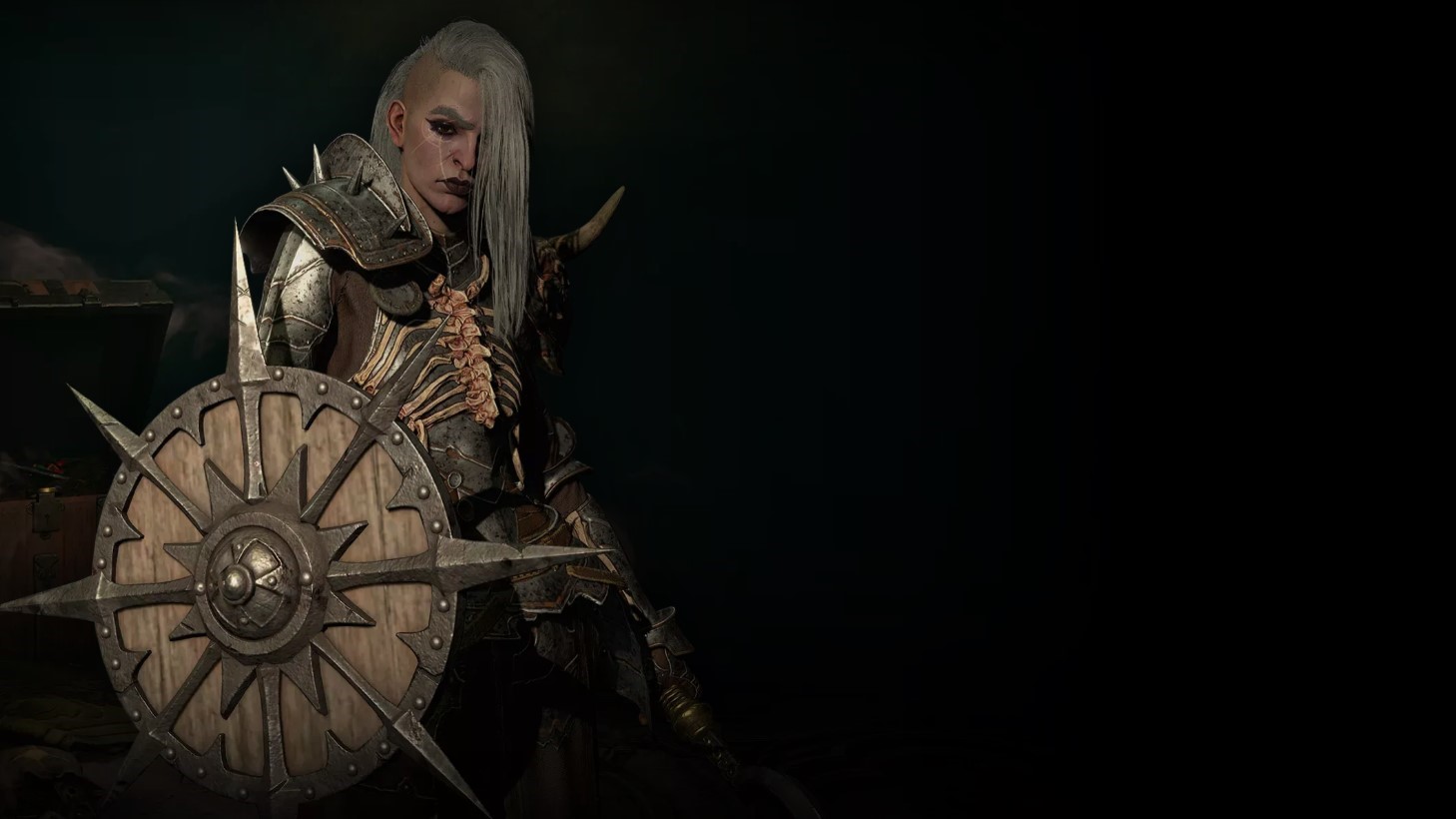
- Strengths: Balanced playstyle, armies of minions
- Weaknesses: Not as specialized as other classes, slow
The extremely versatile Necromancer is capable of both ranged and melee combat, can summon armies of undead minions that draw aggro, and even wield Bone, Shadow, and Blood magic that can be used to crowd control groups and convert damage into health.
Thanks to the wide array of diverse abilities and minion customization options on the Necromancer skill tree, it's the most adaptable class in the game by design. This makes them strong in any situation, including both single and multiplayer. Note that Necromancers are also arguably the best class for solo play since they don't have any major weaknesses.
One big downside of the Necromancer class is that it's not as specialized as something like the Barbarian or Sorcerer. Ultimately, this class trades maximum potential for versatility, and that tradeoff will be worth it in most situations. However, another thing holding the class back is that it's slow and doesn't have any mobility options, which can be a problem in late game scenarios. Notably, Blizzard also nerfed Necromancer's minions in subsequent beta patches (and then un-nerfed them slightly), leaving a bit of a question mark over how they will scale into endgame.
Druid
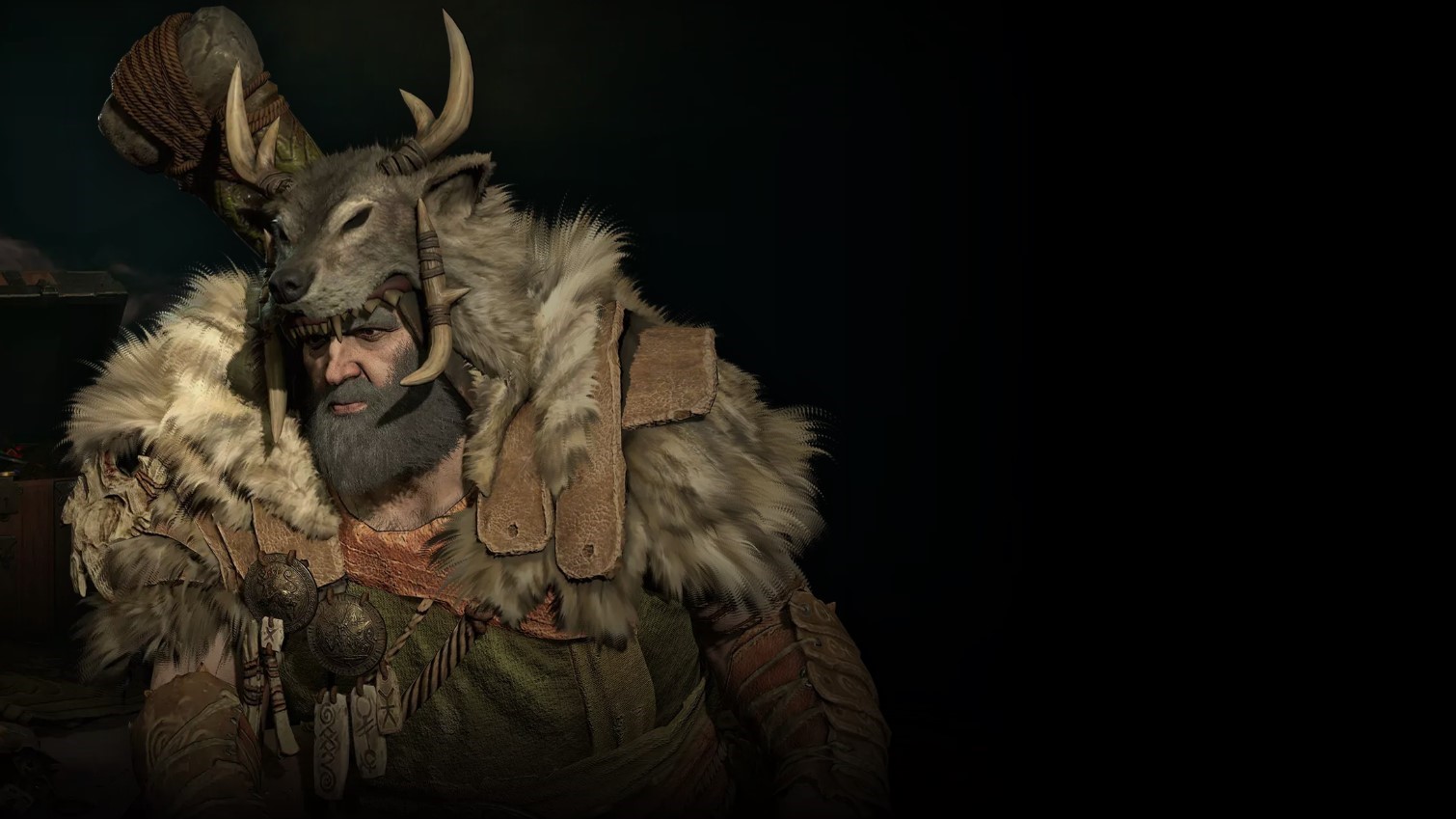
- Strengths: Versatile, fairly resilient, good at crowd control
- Weaknesses: Can be fairly crit-dependent, with damage ramps requiring some set up
The Druid is similar to the Barbarian in that the class' focus is, for the most part, melee damage. Druids can shapeshift into (or between) Werewolf and Werebear forms, with the former boasting high attack speed and crit damage and the latter offering more area-of-effect options and a larger health pool. Druids are also a bit more resilient than some of the other classes in general, and while they're generally not quite as tanky as a Barbarian, you can still soak up a ton of damage with a build centered around your Werebear form. Playing on World Tier 2, Druid gets a little rough with damage output in the mid 30s, but once they start unlocking legendary affixes, their damage really ramps up.
There are limited options for ranged combat in the Druid skill tree, but the class can call upon the powers of nature to damage and crowd control foes with Earth, Wind, and Lightning magic. Even so, don't expect to be able to snipe or nuke enemies quite as effectively as Rogues and Sorcerers can.
Overall, the Druid's shapeshifting abilities and nature magic make them a fairly versatile class, especially in close-quarters combat. They're a little tougher to play than a Barbarian since there's more to their gameplay loop than simply slashing at everything in sight, but they're arguably just as (if not more so) effective thanks to their diverse array of skills. Druid was initially on the weaker side during Diablo 4's March betas, but since then, they've been buffed significantly and are now one of the game's strongest classes.
Diablo 4: Best class for solo play
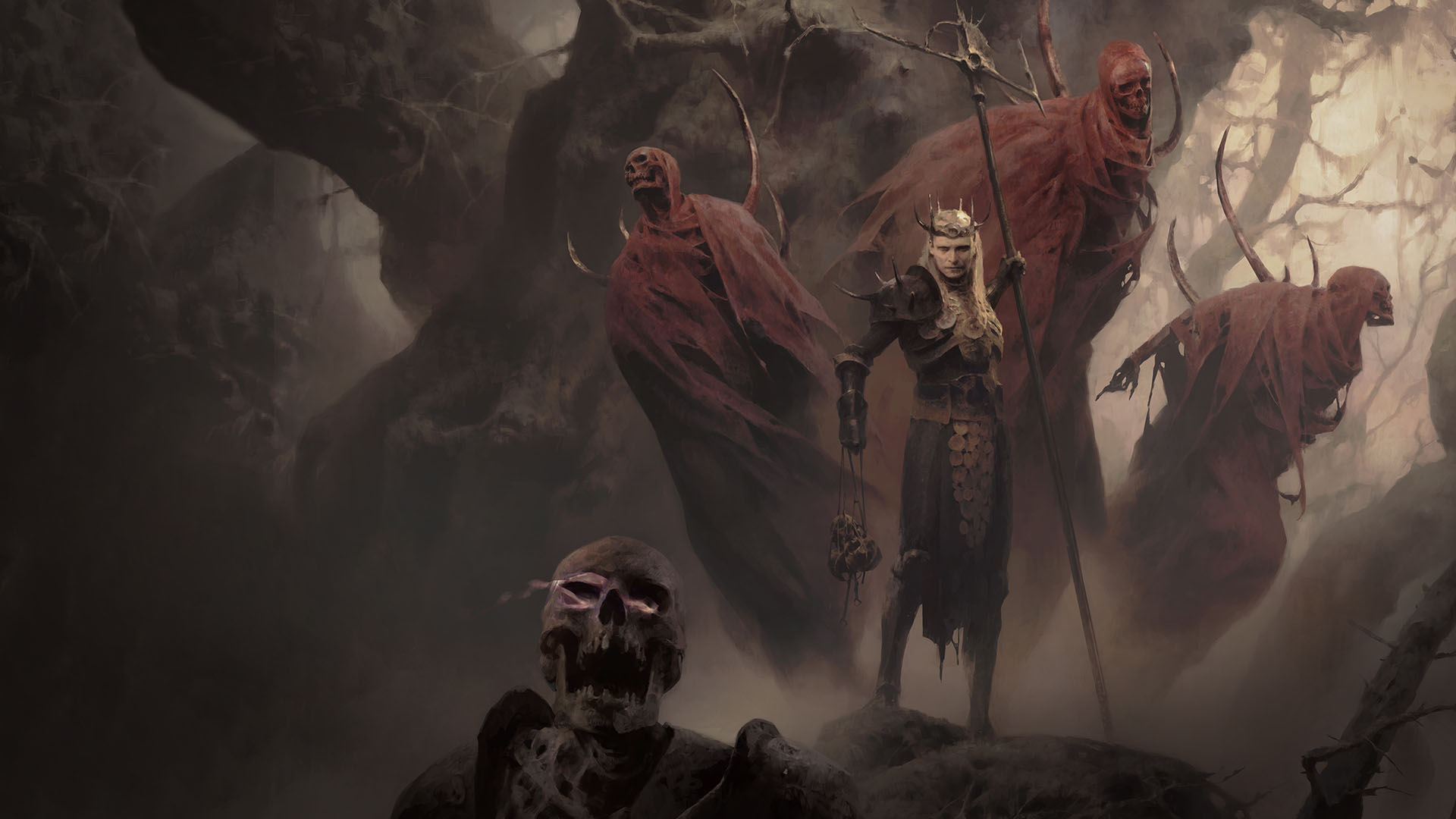
If you're playing through Diablo 4 alone, we recommend choosing the Necromancer, the Sorcerer, or the Barbarian. Since Necromancers have access to powerful ranged and melee abilities and can spawn squads of allied undead soldiers, they'll perform excellently as a solo play class. Alternatively, if you're comfortable with carefully managing your health and positioning, you'll be able to obliterate your foes from afar with the Sorcerer's incredibly powerful magic.
Barbarians are worth considering as well, as they have good defenses and can take a lot of punishment thanks to their high health pool. This helps offset the numbers disadvantage solo players have to contend with. Druids are a solid pick for solo play, too, as some of their skills allow them to call upon wolves and other creatures as battle companions. These "Companion skills" got some big buffs before the game's launch that considerably improved the damage the Druid's creatures can dish out.
Diablo 4: Best class for beginners
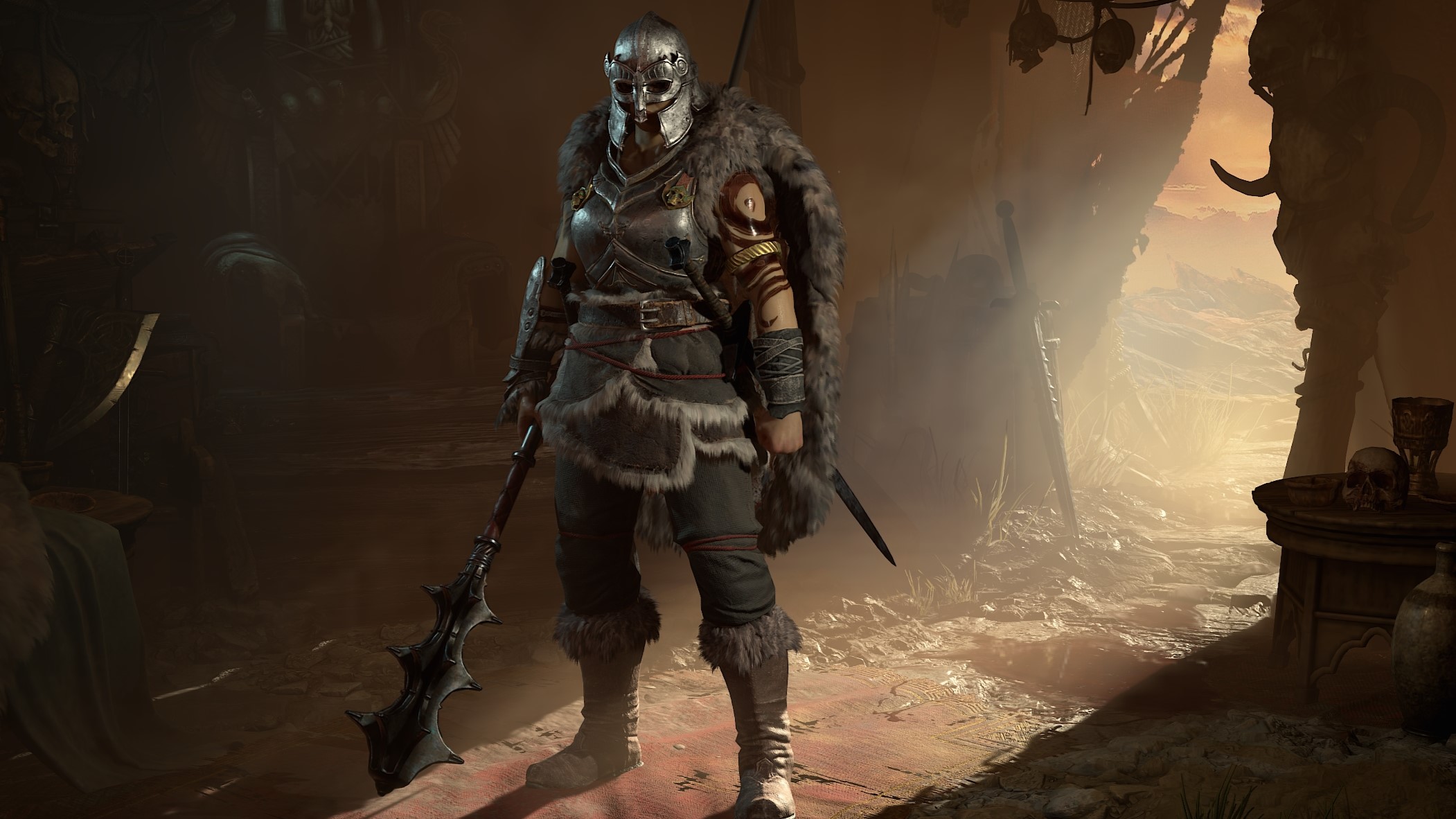
Honestly, Diablo 4 is very friendly for beginners across all classes, but there's some context you should know for each if you intend to explore the game as a beginner. If you're new to Diablo and games like it, you should start out as a Barbarian. While other classes do have some better damage options in the earlier levels, they also have less health and will go down faster than a Barbarian will. Additionally, Barbarians also take 10% less damage than other classes, potentially allowing you to survive in situations that you'd die in otherwise. While you're learning the ropes, it's a very good idea to opt for the simplest and most forgiving class of the bunch.
There's also a case to be made for choosing the Necromancer. While they're a bit squishier than Barbarians and will be a bit harder to play as a result, they can equip a shield, and the ability to summon armies of undead minions has always been incredibly powerful in the Diablo series. This is because your summons can help take pressure off of you as you learn how to play.
Diablo 4 is slated to fully launch on June 6, 2023 on Xbox Series X|S, Xbox One consoles, Windows PC, PS5, and PS4, with Early Access available to fans that preorder the Digital Deluxe or Ultimate Edition. It's one of the best Xbox games for fans of dungeon crawlers and hack-and-slash combat, and we've been having an absolute blast with it.







